When Sharks Cry
There’s a fair amount of crying in business
Not long after Mikki Bey started pitching the Sharks on her eyelash extension business, the waterworks started. Seven million people watched at home as her eyes, the area of her expertise, turned into muddy rivers. She was defending her business and, by extension, her dream. It was a vulnerable, passionate act of crying, and, for real estate mogul and “Shark Tank” investor Barbara Corcoran, one worthy of admonishment.
“The minute a woman cries, you’re giving away your power,” she said. “You have to cry privately.”
Capitalism, by nature, works best when it’s cold and impersonal. “Don’t cry for money,” Kevin O’Leary, the show’s resident Simon Cowell, once intoned when the dudes of Mr. Tod’s Pie Factory got weepy. “It never cries for you.” But something about “Shark Tank,” a reality program replete with bombastic music and crushing insults, makes it one of the most emotional shows on television. Entrepreneurs pitch their companies to multi-millionaire investors; the results can either transform or destroy their lives.
“People get so emotional during ‘Shark Tank’ because it encompasses making dreams come true,” Lori Greiner, one of the “sharks” and a prolific inventor known for investing in retail products, told me. Somewhere out there, there’s still an American Dream. People start businesses in garages; they steal time from their day jobs to make products. They borrow money from in-laws and roll the dice on second mortgages because they believe in themselves. They don’t want to spend another day working for a clueless boss. They never say no to fifteen minutes on national television.
I asked Robert Herjavec, who is a technology mogul and one of the show’s longest-serving “sharks” and the “son of an immigrant factory worker,” why the Tank gets people so worked up. “These entrepreneurs are putting their futures on the line,” he told me. “They sacrifice their time and money — giving their heart and soul to develop their idea. ‘Shark Tank’ is an incredible platform that tells the story of a business in a way that’s relatable and inspiring.”
Social media shows fans crying in droves, moved by the plight of producer-vetted entrepreneurs, stung when their delusions get aired out. Others suspect crying is a negotiation tactic, a last ditch effort to goad the Sharks into throwing money at bad companies. I asked a viewer named Christine what about “Shark Tank” made her weep. “Mostly the fact that people take such big risks,” she said. “And to have them pay off is such a great reward for all their fear, hard work, and sacrifice.”
For Nick Lutke, a devoted “Shark Tank” fan and self-proclaimed connoisseur of reality competition shows, tears are directly tied to deals. “It’s heartbreaking to see their dreams crushed and it’s heartwarming to see their hard work rewarded,” he told me. “I’m an empath, so I get very invested in people and their struggles. Watching people overcome doubt and have their visions confirmed and celebrated is moving enough to elicit tears.”

One of the show’s most infamous crying jags was courtesy of Taya Geiger, co-founder and CEO of Scratch & Grain Baking Co. She lost it after Mark Cuban asked how she’d become so driven — an innocuous question to viewers, but one that resurrected memories of growing up with a drug-addled single mom. “Mark Cuban knew exactly what to ask me,” she said. “To be honest, the producers were jumping up and down when they saw me start crying because I did not tell them any of this stuff. I purposely hid everything about my past because I didn’t want it to be a public thing. They know what they’re doing. They know the emotional questions to ask.”
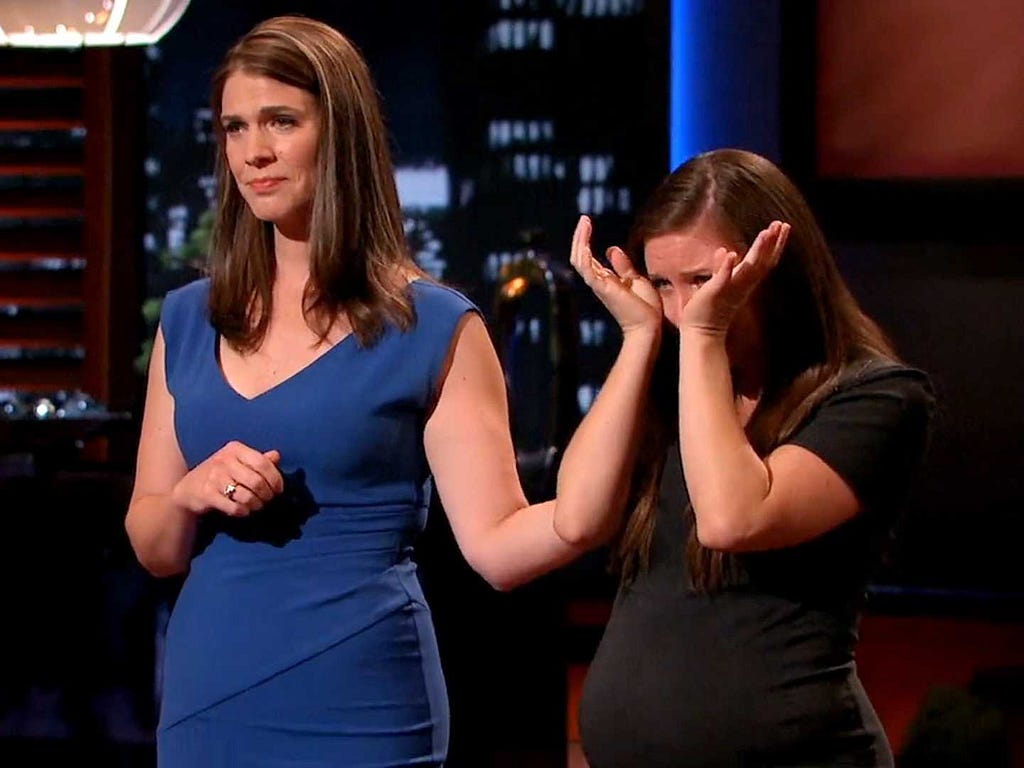
Geiger was also very pregnant at the time. “I actually had my baby less than twenty hours after we filmed that segment,” she continued. “It was an emergency kind of a deal, five-and-a-half weeks early. We took a plane ride home early, and had I not done that, it would have been a whole different outcome. So, yeah, part of my tears were hormonal.”
One risk of crying on “Shark Tank” is that it becomes part of your company’s narrative, thanks in part to incessant reruns on CNBC. Eventually, “Shark Tank” could fill a role akin to “Seinfeld” and “Friends” — an audio-visual narcotic primed for late-night comfort. We’ve seen every pitch; we know every quip by heart. Tears become an act of iconic vulnerability or ugliness, depending on who you ask. Some viewers never let the presenters forget.
Ultimately, Scratch & Grain boarded that flight with a deal. Their investor? Barbara “there’s no crying in business” Corcoran. And while Corcoran has (by my count) only wept once on the show, it’s not unheard of for Sharks to join in on the waterworks. I like to think of the Sharks’ row of five as representing a progressive scale of softness. Cuban, on the far left, has an estimated $3 billion in the bank, over six times the wealth of his nearest peer (O’Leary). He never cries. And like Corcoran, usually seated to his right, his facial expressions maintain a hint of disgust toward entrepreneurs who don’t keep their composure. Kevin O’Leary sits dead middle, the most frequent catalyst for tears and most dismissive investor on the show, yet secretly he’s kind of a baby.
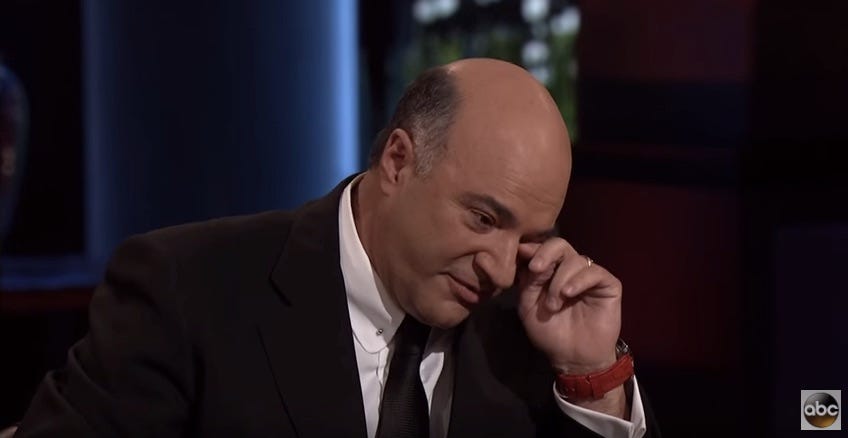
Greiner, “the Queen of QVC,” sits second to the right. She takes risks on personalities rather than products and isn’t afraid to let emotions play a role in her investments. Then there’s Robert Herjavec on the end, softest of Sharks, ready to let loose at mention of his father or a timely rags-to-riches appeal.
When I asked Mark Cuban why the show elicited such emotion, he concluded the reason was its polarity. “Watching people see their dreams come true or possibly crushed can bring anyone to tears of joy or empathy,” he said. There’s little to no space in between. Success and failure result in the same tears, whether from the entrepreneur under bright lights or us watching under covers in the dark. “Shark Tank” provides a novel view into the real people behind corporations. As Geiger pointed out, companies aren’t just General Mills or nonsense words favored by the tech industry. “That’s why ‘Shark Tank’ is so popular,” she said. “It humanizes business.”
Tangents, "Jindabyne (Four Tet remix)"
We’re starting to lose light.
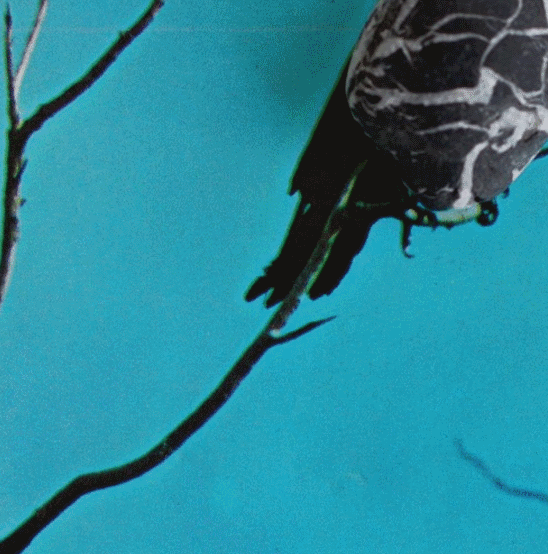
Good morning. When the sun set last night at 8:31 it brought an end to our lengthening days. Even as we speak our evenings creep closer and the hours of light in our lives are gradually diminishing — imperceptibly at first, but moving inexorably toward the shorter, darker days we will look upon with dread when we realize it is too late to escape them. Summer started yesterday and it is already dying. In that way, it is a lot like you.
Say, this Four Tet remix of Tangents’ Jindabyne is terrific. Please do enjoy!
New York City, June 19, 2016
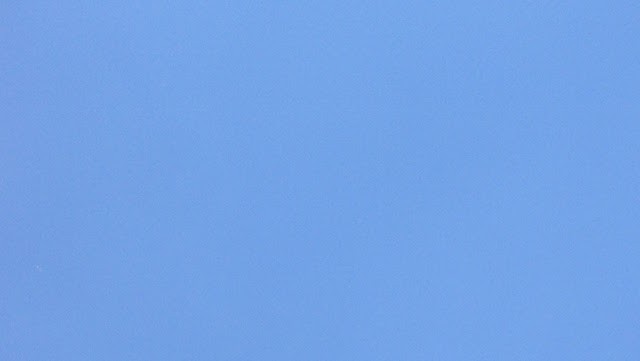
★★★★ The medium-sized loop from the bank ATM to the coffee shop to the hot dog place and back home was enough to leave the four-year-old’s feet visibly begrimed in the flip-flops he’d insisted on wearing. Horrible dry leaves turned in a big slow circle on the empty sidewalk. “Make me cold make me cold make me cold make me cold,” he chanted. At whom? “The wind.” Out on Columbus there’d been a whiff—sweat and suntan lotion?—of the beach. A man and a woman, both in swimsuits, sprawled perpendicular to each other on the roof deck across the avenue. Once the sun was off the top of the sky, the breeze in fact could make a difference.
Fun To Hate
Five 22-Year-Olds Discuss Justin Bieber’s Career
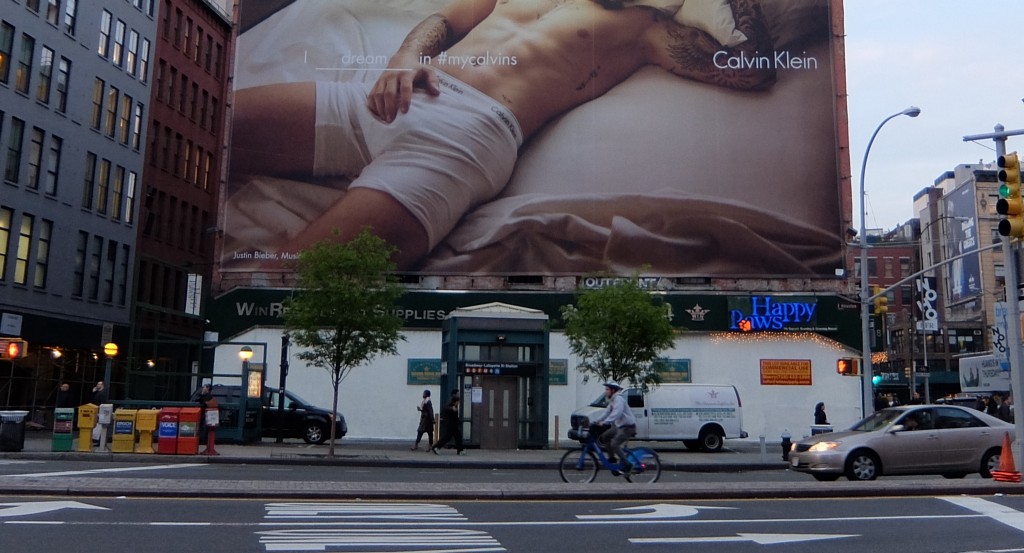
Justin Bieber is the most notable twenty-two year old of our time. Everyone everywhere is exposed to him, and he is, for better or worse, exposed to us. But of all the people writing and talking about thinking about Justin Bieber, the people who have the least to say about him are often his contemporaries: twenty-two-year old boys. I spoke with five fairly different twenty-two-year olds (with names changed) about their recollections and opinions on Justin Bieber throughout their adolescent and young adult lives.

Let’s start with “Baby.” The first single off his second album, My World 2.0, was inescapable when it was released in early 2010. What is your recollection of “Baby?”
Noah (writer): I didn’t like it when it came out, and I don’t think any of my friends did either. It’s some Radio Disney shit, right? I see a lot of people retroactively pretending like it’s a good song, and it’s definitely not, at least compared to some of the stuff he does now.
Gabe (current college student, studying theater): I hated “Baby.” I didn’t think it was catchy or sounded good.
William (recent college graduate, applying to graduate programs in art history): Two weeks after the release, I could be found vehemently admonishing Bieber’s music while being able to sing every word of “Baby” and utilizing its lyrics in everyday conversation (“She woke me up daily, don’t need no Starbucks” was a personal favorite).
Blake (recent college graduate, soon to be teacher): This was my favorite song and music video probably of all of high school. “Baby” was the first song I was ever able to remember completely. I feel like most people have a fond recollection of the first song they knew every word to. Ludacris’s line about “she woke me up daily, don’t need no Starbucks” is gold.
Aidan (recent college graduate, soon to be consultant): It was catchy, immature, and, most of all, fun to hate. The defenders of “Baby” were tween girls who vehemently and almost militarily loved Justin. Among fellow sixteen-year-old dudes, “Baby” was something we could reinforce our feeble senses of masculinity by making fun of.
Around the same time as you started college, Bieber’s notorious wild streak began. He engaged in vandalism, drug and alcohol usage, fighting, and reckless driving. Did you engage in a similar reckless streak when you were that age?
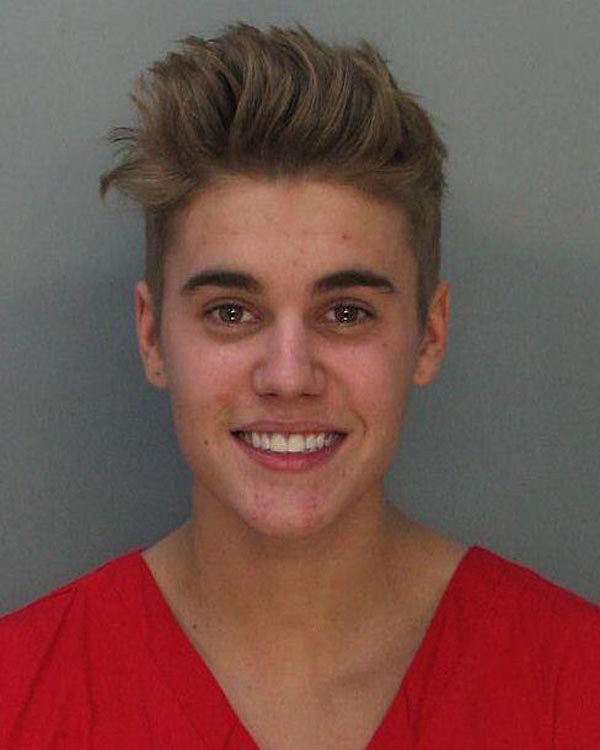
Aidan: Bieber’s recklessness was about him recognizing that he had enjoyed unbelievable fame and fortune in his young age, had been the subject of intense love and appreciation by millions, and now he was being a real dick about it. The sparkling mugshot was the manifestation of his arrogance.
Noah: I was too busy to do stuff like this. I don’t really think acting out while being in a seat of extreme, immense privilege is “bad boy” behavior.
Blake: I engaged in some similar activities, but in the significantly safer confines of a college campus. Doing the same things on a bigger scale (because Bieber was rich as hell) surrounded by grown adults and groupies (because Bieber was famous as hell) was always going to be a recipe for disaster. I always loved the mugshot — it’s legendary.
Gabe: It was hard for me not to laugh at the mugshot at the time, almost as a, “Oh, how the mighty have fallen” sort of way. But it also made me realize that he’s just a teen growing up and going through the same bad phase we all did.
William: I basically said “I told you so” to every single person I spoke to when Bieber began going through his bad boy phase. The satisfaction of seeing someone so self-involved implode at such a scale was delicious. It seemed almost comical how self-destructive he behaved.
Please be honest: Have you ever egged someone’s house?
Aidan: Nope.
Blake: Never.
Gabe: Yeah, I egged my neighbors. They didn’t even notice.
William: God, no.
Noah: No, but I once TP’d someone’s house on Mischief Night in high school. The cops got called! Maybe I can relate to bad boy behavior, actually.
Bieber changed his look dramatically throughout the past few years. Was this something you did in your early twenties?
Aidan: Around the time that Bieber was making these shifts in his appearance or a little before, I was beginning to realize that no amount of hard work would ever make me look right in a flat-bill hat.
Blake: I definitely did not experiment with my look as much as Bieber has the last few years. I love all the goofy stuff he does with his hair. Hair can be grown and cut so easily. I’m trying to take a page from his book and play with my hair a bit these days.
Gabe: I recently bleached my hair because I needed a change. I think we all like to mess with stuff about ourselves in our twenties because we can. I had always wanted to bleach my hair, but was too afraid for whatever reason. Now that I have this hair, it feels like I could change anything about myself.
William: I pierced my ear during study abroad because I wanted to be wild. I think the fantasy of customizing my body became a reality in my early twenties as I began to feel more comfortable with myself. I bet Bieber probably experienced a similar power in taking control of his image.
Noah: No, whenever I’ve tried to get attention, it has been through the admirable and moral pursuit of comedy writing.
Regardless of how you feel about his general look, Bieber’s dreads were extremely bad, right?
Aidan: Didn’t know this happened, but yes, very bad.
Blake: I would say dreads were one of his worst style choices.
Gabe: JUSTIN’S HAIR WAS BAD. IT DID NOT LOOK GOOD, AND IT WAS MESSED UP THAT HE DID IT.
William: No words.
Noah: Fuckin’ Ras Trent-ass dunce.
Where do you stand on ‘Purpose?’
Aidan: Earlier in college, I definitely went through a phase where appreciation of good music that happened to be of indie or alternative genres meant shunning pop music. I’m wholeheartedly over that. “Love Yourself” is like a sassy John Mayer song. “Sorry” is a triumphant, sexy Disney song with dancey undertones. And “Where Are U Now” is a bizarrely, delightfully unique and hard-hitting banger.
Gabe: I don’t think any of those songs are my favorite, but I’ll admit they are catchy.
William: I think that the singles on this album are the best Bieber has ever released. The music videos have also been quite good (I really enjoy the “Sorry” music video in particular. The girl in the polkadot Adidas outfit stole my heart). I wanted to like this album as a whole so much more than I do, but so much else of it is forgettable.
Noah: The highs are really high, and the lows are really low. That “what about the children” song is the most embarrassing thing ever. But all the singles, other than “Love Yourself,” are so good. I think it’s a pretty good album that could definitely have been trimmed down.
Blake: I love Purpose with two major caveats. First, his most popular singles all had major outside help in writing, producing, and instrumentation. Second, Purpose has led to a whole group of people who “don’t like him as a person but like his new songs” (this is the music equivalent of a young person being “socially liberal, but fiscally conservative,” pick a goddamn side!). I wish we could all just appreciate good pop music and this goofy guy named Justin Bieber.
As it stands right now, how do you feel about Justin Bieber?
Gabe: I couldn’t stand him when I first heard him. But now I don’t really have an opinion. I have matured a lot since I was in high school, and I also have different hair now. If you like Justin, if you hate Justin, I don’t care. It’s your taste in music.
Aidan: I like Justin Bieber’s new music. I don’t know if I have enough information to like the new Justin Bieber, but I also don’t dislike him. I’ve watched Bieber’s performance of “What Do You Mean?” and “Where Are U Now” at the VMAs many times (mostly because my girlfriend went through a phase of watching it as an almost daily ritual) and at the end, he cries a little. I’ve thought about that crying, and it seems to me that Bieber’s overwhelmingly thankful. It remains to be seen if that gratitude is real.
Noah: I think he kind of sucks as person? I’m definitely on board with his music, probably for a while, if he continues doing stuff similar to the best of Purpose.
Blake: He’s a professional in his field, pumping out successful songs, music videos, movies, concert tours, etc. for millions of rabid fans. I believe in his work ethic and his talent. Props to him — he’s a workhorse.
William: I think he is still maturing and has the potential to hone his craft more. I wouldn’t call myself a Bieber fan, but I also wouldn’t say I hated him. Something about him doesn’t feel genuine, and that is hard for me to ignore. Maybe it’s because he has been doing it his whole life, but it feels as if the Bieber we know was entirely constructed from scratch. He doesn’t exist as some person in the world, but as this character that performs.
Last but not least: your favorite Bieber song?
Aidan: “What Do You Mean?”
Blake: “Sorry.” [ed. note: Blake sent a ranked list of his top 5 songs with 3 honorable mentions so I picked the one he ultimately ranked first.]
Gabe: Favorite song has to be “Sorry.” Super catchy.
William: I am going to have to go with “Sorry.” I think both the song and the music video are extremely fun and silly.
Noah: My favorite Justin Bieber song is that song with Migos. [ed. note: It’s called “Looking For You.”]
OKAY, FINE. A BONUS QUESTION: SHOULD JUSTIN AND SELENA GET BACK TOGETHER?
Aidan: No, they need new material.
Blake: I don’t care if they’re together — just make sure that sexual tension exists for the sake of their music.
Gabe: Justin and Selena are meant for each other. He thinks about her every night. He will always think of her as the one that got away. Hang in there, my dude!
William: You have to pick your celebrity reunion battles, and I am still rooting for Heidi Klum and Seal.
Noah: No. Selena deserves the best, and that is certainly not Justin Bieber. Maybe, just maybe, that person is none other than yours truly, myself.
Fran Hoepfner is a writer and comedian living in Chicago.
A Few Questions About The Tronc Video
Is this is a real video that a news company made in 2016?
The future of journalism. Period. Is that a sentence? Does it really not get better than the future of content? Does the music kind of sound like a bad Massive Attack impression but with cricket noises in the background? Where did the camel-cap ‘S’ come from in CasSelle? What do circuit boards have to do with journalism? And how come the ‘t’ is dissolving like an Alka-Seltzer tab in water? How do you make content so that people “want to consume it more and more?” Do you add monosodium glutamate? Can you get heartburn from consuming too much content too fast? If you feed local journalism into a funnel, does it not bleed? How do you optimize the content from inside a funnel? When you say “use machine learning to maximize all the time,” what are you maximizing? Will the machines write tweets for brands? Will they still try to make bad jokes? At what point during this video did the string section come in? Why does it take an entire year to increase the number of article pages with Brightcove video players by thirty-four percent? Is it just me or is this a brutally honest video that basically five-sixths of the way through admits, “We have to do the video thing because of money?” Should we all hold hands and watch the second video together?
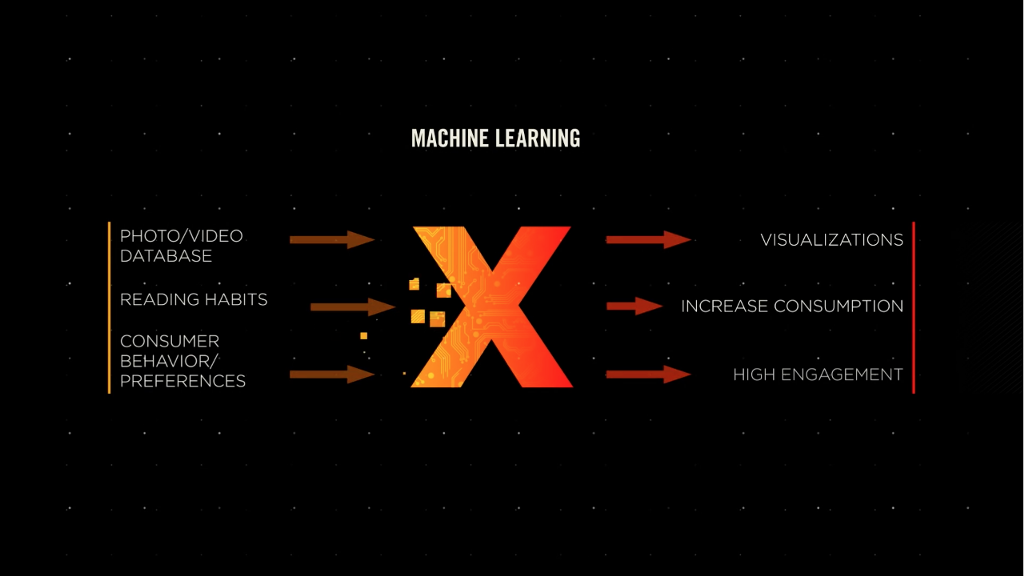
Psychic Temple, 'Plays Music For Airports'
Welcome to summer.
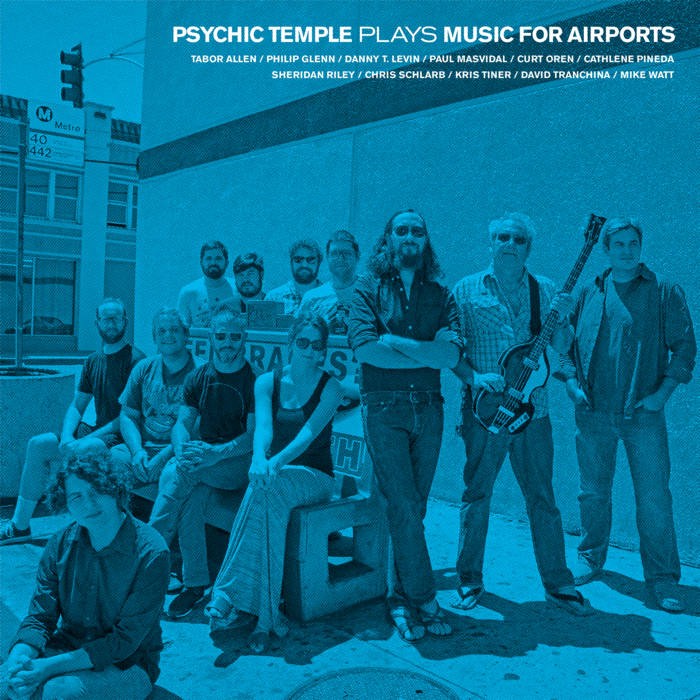
Happy first day of summer! (And happy first day of summer drinking season!) If you read the papers — hahaha, how much of an old person do I sound like here, “read the papers”? As if you’ve held an actual newspaper in your hand to do anything except pack boxes at any time in the past five years. Pretty soon you won’t even know what paper is, let alone the papers. I mean, maybe I’m wrong, maybe the papers will be like the vinyl version of the news. But I kind of doubt it. Papers are fucked. Everything is fucked, really, but papers are going to get it before a lot of other things that deserve it more. Sorry, papers. — or follow the news some other, more modern way, you might feel as if this could be our last summer, a feeling I would not fault you for having, given what’s going on at the moment. (An alternate concern that I could equally appreciate is that it might be summer forever, in the sense that it’s going to be warm from here on out, the figurative hell that we are apparently descending into made literal through our inability to contend with the forces we have let loose into the atmosphere etc.)
Whatever we get, last summer or permanent summer, are you thinking about how you’re going to make this one count? Well, don’t bother: Summers are meant to be wasted, and it is folly to think that this is the one where you’ll somehow get it together to make something out of. It would be nice to believe that come fall you’ll be able to pat yourself on the back and say, “Gosh, I really got it together this summer,” but we all know how it’s going to end: You looking at the clock as Labor Day (less than 80 days away!) winds down, thinking, “Oh my God, I fucked it up again.” Well, don’t be too hard on yourself: Better people than you have tried and failed to make the most of summer. It is a season to be wasted, and the sooner you are at peace with that the sooner you can enjoy it. Either way, it starts now.
Hey, how about some music? I have been listening to Psychic Temple Plays Music For Airports quite a bit lately, and as someone who loves Brian Eno’s original (and who also believes that Bang on a Can’s version is one of the great interpretations of any artwork of the last twenty years) I am probably an easy audience for a loose re-imagining of its first movement, but I really think there is something here even for those unfamiliar with the piece. Give it a shot, and please do enjoy. Also, if you like it, buy it. It is the kind of thing that should be encouraged. Anyway, good luck with your summer. Not that it matters.
New York City, June 16, 2016
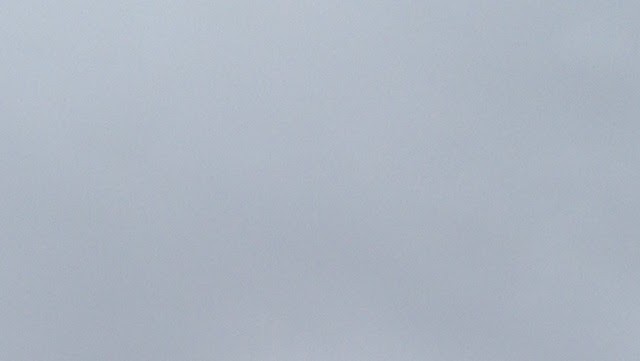
★★ Morning brought the sound of wet traffic outside and an email announcing the relocation of the preschool picnic indoors. Now and then a fleck of rain still fell in the stifling air outside. The paper had said the clouds would go away, but they stuck there, and right after lunchtime umbrellas came out on Fifth Avenue. The sun almost came through, or came through somewhere else; by rush hour there was a patch watery blue uptown and a grimy orange downtown. At last the clouds relented and let through a splash of golden light and a wash of sunset color, pretty but nowhere near enough.
Start Your Day-Drinking Even Earlier
Or just drink at home! Jesus, what is it with you people?
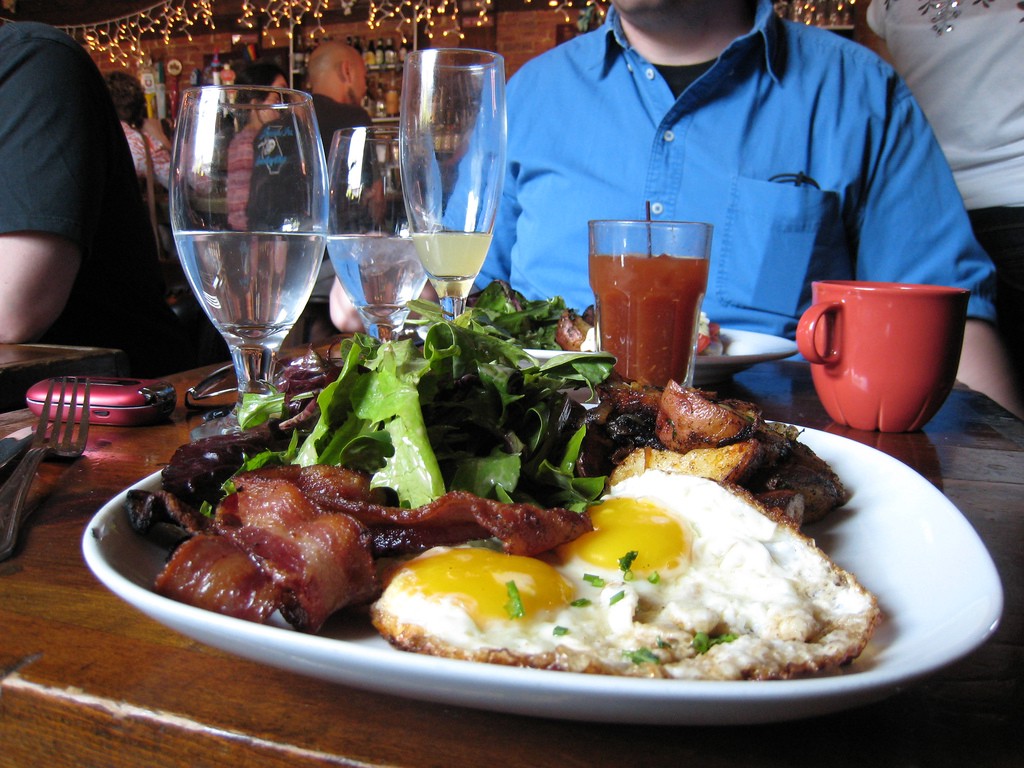
If you are a New Yorker whose unwillingness to acknowledge the drinking problem you have developed over the last few years leaves you jittery and irate on Sundays because the restaurants here will not serve you sweet, shake-relieving alcohol until noon (or if you are simply a drunk with poor planning skills), good news: Both the Senate and the Assembly have passed legislation that will “allow wine be sold in growlers and let restaurants begin serving alcohol at 10 a.m. on Sundays and, outside of New York City, at 8 a.m. up to a dozen times a year.” Now it’s off to the governor for his signature. Congratulations! This will help you keep pretending for a little while longer at least!
Transmitter Park, Greenpoint, Brooklyn

What a thing to happen to a person alone in a park, to get hit by a wave. Not a figure of speech, this wave, but an actual sudden freak tidal slap of East River water, oily and duck shitty and horrible. Worse things could happen and this week they had; forty-nine people had been shot dead in a gay club and the unfunniest joke of a presidential candidate had responded with a tweet that began, “Appreciate the congrats.”
But now it was five thirty and balmy so I could think of that David Berman poem, “The Charm of 5.30”, in which nothing bad happens to anyone because, “the sky is blueberries and cream / and the wind is as warm as air from a tire.” And it was true: the blue above swooshed through with cirrus cream and below, ferries chugging up and down the East River looking so eager and cheerful that I saw big Pixar eyes and grins on their prows. In Berman’s low-key rhapsody, his 5.30 offers a “kind of fellowship”, “out in the public spaces.” But this wasn’t his small town, it was a waterfront park in Brooklyn, a whole other kind of public space. The kind whose inhabitants induce not fellowship, but a slight terror that comes from the symmetry of their features and the length of their limbs and width of their strollers.
From a distance, you might have mistaken me for one of them, with my sandals kicked off and my sunglasses on and my bottle of San fucking Pellegrino beside me. I was reading for work, so it was a smugly justified leisure. I’d forgotten the Post-Its but was taking pleasure in turning down certain pages, making tiny prim dog-ears of them. Sometimes I’d sit up and take off the sunglasses for a second to see, like Berman (who I think of as Dave in this poem) that it was “earlier/ and lighter out than you had accounted for.”
I spotted you sitting at the end of the concrete promontory, that low wall banking the rocks once placed there to fake a beach. Fake beach, but the seaweed growing there is real. What I mean is, this is a spot where people go to summon a bit of dignified solitude, a place where the placid slappings of the East River might stand in for, you know, the turbid ebb and flow/ Of human misery. You can be Matthew Arnold on Dover Beach, striving for Sophocles.
Except now the turbid ebb and flow suddenly got choppy and panicky, as if one of the boats had frowned, stuck its nose in, and turboed up and down the river, raging. You didn’t have time to gather up your stuff or get out the way. I watched a huge wave rise up, pause above your head as though exquisitely sensitive to the exactitude of comic timing, and then dump itself over your body. It was fist in mouth funny, or awful, or funny-awful.
You stood up and then I stood up and then I moved towards you in that urgent uncertain way people do and said, “Are you OK!” And now I could see you, your hair plastered and dripping and your whole outfit several shades darker — drenched. Your notebook in your right hand was open and all that orderly handwriting in blue fountain pen was now wobbled, blotched, swollen and smudged. (A pang: you were the kind of woman who wrote in notebooks in blue fountain pen. Like recognizes like. I usually carried miniature Post-Its.) With your keys and ugly bike helmet in the other hand you were stupefied and helpless: too many things in your hands, all of them soaked.
I took your helmet and then your hand to help you off the rocks and of course you didn’t look at me because who can look a stranger in the eye after being slam dunked by a freak wave. You were fine — I mean of course you were fine, it’s just water — but you muttered an embarrassed little joke about water-borne illnesses. As you walked off you left a trail of drips on the tarmac.
I really did think there’d been some sort of cosmic misunderstanding. As in, you must have seen me as the serene person with the sunglasses and the San Pellegrino, but that was all wrong. I wanted to make you understand this, to insist it — that my truth is being dumped on by a wave of disgusting river water. Instead it had happened to you and I felt bad.
At home, I Googled “east river pollution”, learned the word “eutrophication” and decided you’d probably be ok.
